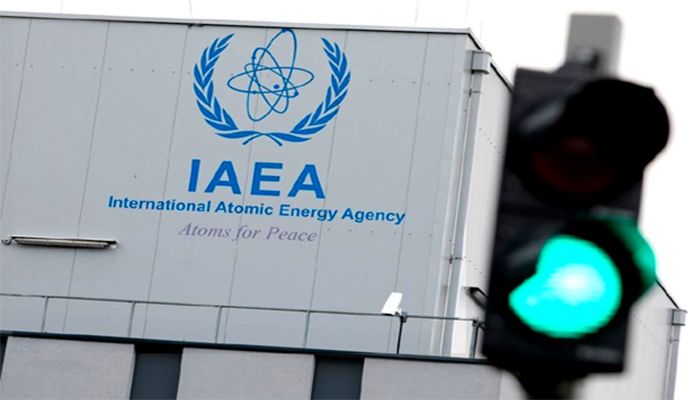
Desk Report
Publish: 01 Sep 2020, 12:34 pm

The signatories to the faltering Iran nuclear agreement meet in Vienna on Tuesday as the US urges the reimposition of economic sanctions on the Islamic republic and the implementation of an arms embargo.
Britain, France, Germany, China and Russia are trying to save the historic deal with Iran in 2015, which has been slowly intensifying its nuclear activities since last year, reports AFP.
Tehran maintains that it is allowed to do so under the deal — which traded sanctions relief to Iran 's commitment to cut down its nuclear program — after the US exit from the arrangement in 2018 and the re-imposition of sanctions.
In a boost to Tuesday's negotiations, last week the Iranian nuclear industry decided to visit two sites accused of having housed undeclared activity in the early 2000s for UN nuclear watchdog inspectors.
Rafael Grossi, president of the International Atomic Energy Agency ( IAEA), had traveled to Iran on his first trip after taking up the top post last year and asking for entry after months.
However, findings from any site inspections are likely to take three months, according to a diplomat who is familiar with the matter, but if anything is discovered undeclared and nuclear-related, "it risks becoming an issue then with the Iranians."
– US ‘isolated’ –
Russia's ambassador to international organizations in Vienna, Mikhail Ulyanov, noted on Twitter Monday that "participants in the nuclear agreement have a lot of topics to explore."
The meeting will be headed by senior EU official Helga-Maria Schmid with attendance from deputy foreign ministers or political directors from the UK, China, France , Germany, Iran and Russia.
Mark Fitzpatrick, an associate fellow of the International Institute for Strategic Studies (IISS), said last week's access deal holds "Iran largely in line with the rest of the world, toward an isolated USA."
The United Nations last week blocked the US bid to reimpose international sanctions on Iran, while Washington also failed to rally enough support to extend an arms embargo set to start to lapse from October.
But Fitzpatrick pointed out that “Iran’s nuclear activities remain of deep concern to those states that are dedicated to non-proliferation”.
Iran has reportedly recently moved advanced centrifuges used to enrich uranium from a pilot plant to a new hall at its main nuclear fuel plant in Natanz, which was damaged by July sabotage.
An IAEA evaluation issued in June said Iran's enriched uranium reserve was nearly eight times the cap specified in the agreement.
Enrichment amounts are still well from what would be required for a nuclear bomb, but EU parties to the agreement have urged full cooperation by Iran.
The IAEA, which periodically advises its representatives on Iran's nuclear operations, is scheduled to release a fresh briefing ahead of a member states meeting later this month to discuss the dossier.
Subscribe Shampratik Deshkal Youtube Channel
© 2024 Shampratik Deshkal All Rights Reserved. Design & Developed By Root Soft Bangladesh